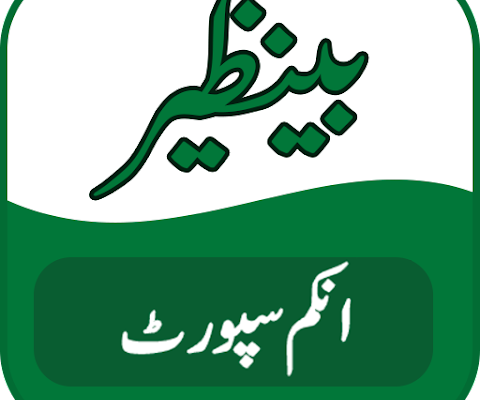The Benazir Income Support Program (BISP) is a social safety net initiative in Pakistan that was launched in July 2008. It was named after the late Benazir Bhutto, the former Prime Minister of Pakistan. The program aims to provide financial assistance to the most vulnerable and marginalized segments of society, including widows, orphans, and disabled individuals.
The primary objective of the Benazir Income Support Program is poverty reduction through the provision of cash transfers to eligible households. The program identifies eligible households through a national socioeconomic survey and then provides them with regular cash transfers. The amount of cash transfer varies depending on the category and needs of the household.
The program is administered by the BISP, which is a federal government agency. It operates across all provinces of Pakistan, including Azad Jammu and Kashmir and Gilgit-Baltistan. The BISP collaborates with various government departments and partner organizations to ensure effective implementation of the program.
The Benazir Income Support Program has been instrumental in providing support to vulnerable households and reducing poverty in Pakistan. It has contributed to improving the socioeconomic conditions of beneficiaries by enabling them to meet their basic needs, such as food, education, and healthcare.
It’s important to note that my knowledge cutoff is September 2021, so there might have been updates or changes to the program since then. It’s advisable to refer to the latest official sources for the most up-to-date information on the Benazir Income Support Program.
Certainly! Here are some additional details about the Benazir Income Support Program (BISP):
1. Eligibility Criteria: The program
targets households living below the poverty line, with a particular focus on women. The eligibility is determined through a comprehensive survey known as the National Socioeconomic Registry (NSER). The survey collects data on income, assets, and other socioeconomic indicators to assess the eligibility of households.
2. Cash Transfer Modalities:
The BISP provides cash transfers to eligible households through different modalities. The primary modality is a bi-monthly cash grant disbursed directly to beneficiaries through various payment mechanisms, including smart cards, mobile banking, and designated bank branches. The program has also introduced a new initiative called the Kafaalat program, which aims to empower women through financial inclusion and digital payments.
3. Conditional Cash Transfers:
In addition to regular cash transfers, the BISP has introduced conditional cash transfers (CCT) to promote human capital development. These CCTs are provided to beneficiaries on the condition that they comply with certain requirements, such as ensuring their children’s school attendance and accessing healthcare services.
4. Complementary Services:
The BISP recognizes that cash transfers alone may not be sufficient to address the multidimensional aspects of poverty. Therefore, it collaborates with various government departments and partner organizations to provide complementary services to beneficiaries. These services include skills development training, vocational education, healthcare facilities, and access to microfinance and entrepreneurship opportunities.
5. Monitoring and Evaluation:
The BISP emphasizes the importance of rigorous monitoring and evaluation to ensure transparency, accountability, and effectiveness of the program. It conducts regular assessments and surveys to evaluate the impact of cash transfers on poverty reduction, education, healthcare, and women’s empowerment.
6. Expansion and Reforms:
Over the years, the Benazir Income Support Program has undergone expansion and reforms to enhance its coverage and impact. It has increased the number of beneficiaries, expanded geographic reach, and introduced technological innovations to streamline processes and improve efficiency.
It’s worth noting that the program’s specific details, coverage, and implementation may have evolved since my last knowledge update in September 2021. For the most accurate and up-to-date information, it is advisable to refer to official sources, such as the BISP website or official government announcements.
Certainly! Here are some additional details about the Benazir Income Support Program (BISP):
1. Financial Inclusion:
BISP has collaborated with financial institutions to promote financial inclusion among the beneficiaries. It encourages the opening of bank accounts for cash transfers, enabling them to have access to formal financial services and participate in the banking system. This initiative helps foster financial literacy, savings, and access to credit for the beneficiaries.
2. Disaster Relief:
BISP plays a vital role in providing assistance during times of natural disasters and emergencies. The program has a contingency plan in place to respond quickly and provide immediate relief to affected families. This ensures that vulnerable households receive support during times of crisis, helping them cope with the aftermath of disasters.
3. Transparent Grievance Redressal:
BISP has established a transparent system for addressing grievances and complaints from beneficiaries. It provides a platform for beneficiaries to voice their concerns and seek resolution for any issues they may encounter. This mechanism ensures accountability and fairness in program implementation.
4. Data Sharing and Collaboration:
BISP collaborates with other government departments and agencies to enhance the effectiveness of its programs. It shares its data with relevant stakeholders, such as education and health departments, to ensure better targeting and coordination of services. This collaboration allows for a more holistic approach to poverty alleviation and social protection.
5. Impact on Poverty Reduction:
The Benazir Income Support Program has had a significant impact on poverty reduction in Pakistan. Through its cash transfers and complementary initiatives, it has helped improve the living conditions of millions of vulnerable households. The program aims to break the cycle of intergenerational poverty by providing opportunities for education, skill development, and entrepreneurship.
6. Continuous Program Expansion:
Since its inception, BISP has undergone continuous expansion and improvement. It has extended its coverage to include more beneficiaries and has increased the amount of cash transfers over time. This expansion reflects the government’s commitment to addressing poverty and ensuring social protection for marginalized communities.
It’s important to note that while I strive to provide accurate and up-to-date information, the specifics of the Benazir Income Support Program may have evolved since my last knowledge update in September 2023. For the most current and detailed information, it is advisable to refer to official government sources or reputable news outlets in Pakistan.

![Video Face Smoothing App For[Android&iPhone] Video Face Smoothing App For[Android&iPhone]](https://apktek.com/wp-content/uploads/2024/07/492x0w-1-348x215.webp)
![Bes Photo Editing App[Android&iPhone] Bes Photo Editing App[Android&iPhone]](https://apktek.com/wp-content/uploads/2024/07/492x0w-348x215.webp)
